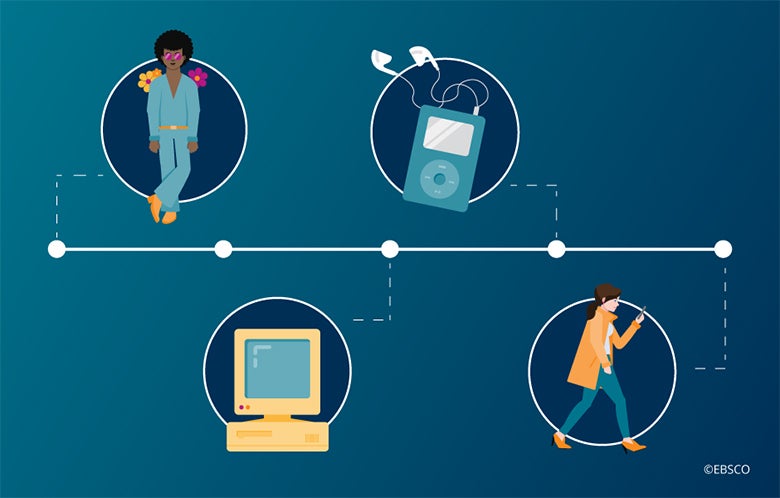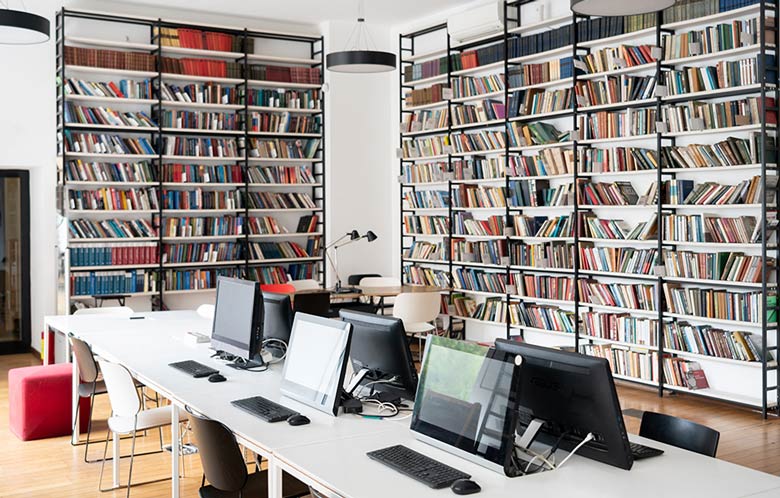The challenges brought on by the COVID-19 pandemic have continued to affect colleges and universities around the world, and much still remains unknown. Academic libraries have found the need to shift their collection development practices and philosophies to ensure they can support students and researchers in the short-term and long-term, no matter where they are. GOBI Library Solutions has been working with libraries as their priorities and needs change as a result of the pandemic, and perhaps the biggest change for libraries has been the shift from supporting classroom-based instruction to online and distance learning.
University of Victoria (UVic) in British Columbia worked closely with GOBI to shift their collection development practices to be more e-focused in order to support distance learning and ensure they can provide the resources their students and researchers need. Lisa Petrachenko, the Associate University Librarian, Learning & Research Resources at the University of Victoria, along with a small team of colleagues, led an organized and swift response to the pandemic by shifting from collecting print books to e-books, and worked with GOBI to make adjustments including shifting their library’s approval profile to e-preferred and exploring other e-book acquisition models, including Evidence-Based Acquisition (EBA).
Read a Q&A with Lisa to learn more about how their library was affected and the steps they took to plan for the future.
How was your campus affected by the COVID-19 pandemic?
Pivot, flexible, responsive, unprecedented, albeit overused words of late, best describe the challenge and necessary actions in answering the events of the rapidly evolving situation during COVID-19. Beginning in mid-March 2020, with the health and safety of our community our highest priority and following the advice of the Public Health Agency of Canada, it became necessary to transition from face-to-face to alternative modes of instruction and modified forms of evaluation for the remainder of the academic term. All undergraduate students were encouraged to travel home, and staff and faculty were swiftly adapting to working remotely. This all occurred over a five-day period. Following this, the next phase was to prepare summer session course offerings online. Currently UVic is preparing for the September-December 2020 term; delivery of most instruction will continue online with limited on-campus activities.
Fortunately, our collections have evolved over time where online content has been outpacing print for most resource formats.
Fortunately, our collections have evolved over time where online content has been outpacing print for most resource formats.
How was your library affected? What changes did you have to make?
UVic Libraries closed physical buildings and moved to deliver all services and resources online. We built a COVID-19 response web page to keep our community updated as the situation evolved, while also taking time to review our existing web pages to make certain the information was accurate and appropriate in the new environment.
With faculty transitioning from face-to-face instruction to online course delivery, we took the opportunity through active outreach to identify required teaching and resource materials where an online equivalent would be required. We also prioritized these titles for purchase along with any Course Reserve materials.
Fortunately, our collections have evolved over time, where online content has been outpacing print for most all resource formats. We felt confident, despite initially not being able to provide access to the print collection, that we would be able to meet research needs. I have been so impressed by our team’s efforts during what has been a very uncertain time for so many. Through their efforts, we demonstrated the ability to support teaching and learning in absence of access to a physical space.
How did you adjust your collection development practices?
We were confident that we were well-positioned to respond to and support a fully online learning environment apart from our monograph purchasing patterns. Monograph acquisitions had not yet fully transitioned to e-preferred. We had a mix of title-by-title selections (e-book and print), a well-developed print approval plan profile, and select publisher, front-list e-book collections (purchased). UVic did not opt to venture into the demand-driven or patron-driven acquisition models but rather saw that an evidence-based acquisition model was a better fit for our institution.
Prior to COVID-19, the initial plan was to identify a single publisher to work with to implement a pilot EBA license. As events surrounding COVID began to shift and with our print collection inaccessible, we quickly rethought our options. In the first month, all print approval plans were suspended and migrated to an e-preferred approval plan. We reallocated funds to support EBA plans for not one but four publishers. Our end goal was to prioritize greater access to content, using data to inform our acquisition and collection development practices.
We are also using this time to promote the adoption of open education resources (OERs) to faculty and instructors over textbooks that libraries are unable to license. COVID-19 has demonstrated the inequities that can exist between students not only with access to technologies, but also with affordability of resources.
This is truly a collaborative effort and we have been impressed with how well it has come together.
This is truly a collaborative effort and we have been impressed with how well it has come together.
What support did you receive from GOBI?
GOBI was incredibly responsive and supportive to our needs. We worked closely with Barbara Kawecki, Director of Collection Development and Workflow Solutions and Alicia Zorzetto, Collection Development Manager, Canada, who were amazingly patient as we worked through the process of setting up four EBA plans. We arranged separate meetings that included GOBI, UVic and the publisher representative, which proved to be effective and efficient. We also opted to use GOBI’s MARC record service to ensure duplication control and they were very willing to accommodate our request to include customized fields for our EBA MARC records. MARC records for the 200,000 titles that we will have access to via the EBA plans are in the process of being loaded into our catalogue and discoverable for use.
Having our holdings information centralized with GOBI will provide the ability to work with them to complete a print overlap analysis in the event we opt to duplicate our print holding with the e-edition. The Technical Services team at GOBI has been stellar with ensuring all technical specifications for the sub-accounts are correct and set up in a timely manner, and we have centralized our billing through GOBI for ease of tracking and reporting expenditures.
This is truly a collaborative effort and we are impressed with how well it has come together. We are in the process of launching our communications strategy and have already had positive feedback from faculty discovering the new titles.
What are your plans for the upcoming academic year?
We will continue to work remotely during the upcoming year for the safety of staff and students, supporting campus teaching and research needs. We are identifying known areas where there are limited or no online resources and working to secure options for these areas. In some instances, we are connecting smaller, predominantly print-only publishers with online hosting solutions in order to make their content more available.
We have plans to review our print collection usage to determine which titles would be candidates for duplicating with the e-book version. Data will continue to inform our collection policies and decisions.
As part of ensuring equitable access to materials, licensing provisions will be important to review and update language to reflect current trends and needs such as full e-book interlibrary loan provisions. Users are going to want and need access to more content, so we have been looking at increasing our digitization capacity. With more digital content produced on campuses, we are seeing a need for increased storage and hosting capacity. We may see an increase in submissions of this digital content to the institutional repository.
Through continued collaborative efforts, we will continue to excel despite the impact the COVID-19 pandemic has had on our personal and professional lives.
GOBI Library Solutions is working to support customers whose campuses have been impacted by the effects of the COVID-19 pandemic. Due to the increase in distance learning needs, we are offering a range of e-book services and options to ensure that student learning and research proceed with minimal disruption. Contact your Collection Development Manager to learn more.
In addition, EBSCO is making more and more resources freely available and expanding access to EBSCO and partner content. Visit the page below to view a growing collection of content offers, webinars and other resources designed to help library staff provide their students, faculty, researchers and patrons with expanded access to online resources that are now in critical demand.



